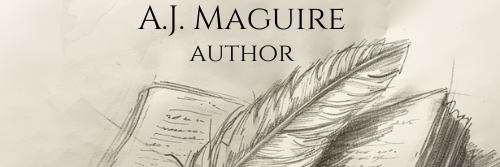To be honest, I use the events of every day happenings in my novels all the time. I thrust unfortunate events like locking one’s keys in the ignition or stabbing one’s hand onto my characters because I find it endlessly entertaining and because it helps unite the reader to my character.
Maybe you’ve never stabbed your hand, but I bet you’ve lost your keys once or twice. Things like this help make the story real. And since I write a lot of science fiction/fantasy, the more I can make people feel like it could be real, the better.
Bigger life events I shy away from. Instead, I allow these life events to help inform my fiction instead of framing it. My mother is still, thankfully, alive, and I hope she remains so for many years to come. But I have a novel where the main character’s mother recently died.
There is the age-old adage to only write what you know, but I find this mostly an excuse not to sit back and unpack the issue with any real depth.
No, I have not lost my mother.
But I know grief. I’ve lived through losses. And while it is not exactly the same, there is a vein of similarity that can be used in my fiction.
Perhaps I will write a novel full of self-reference one day, but I’ll be honest and assure you that I will never admit it.
See what my fellow authors have to say about life events mirrored in their fiction in this month’s round robin conversation.
Victoria Chatham http://www.victoriachatham.com
Skye Taylor http://www.skye-writer.com/blogging_by_the_sea
Judith Copek http://lynx-sis.blogspot.com/
Dr. Bob Rich https://wp.me/p3Xihq-1Dm
Beverley Bateman http://beverleybateman.blogspot.ca/
Margaret Fieland http://margaretfieland.wordpress.com
Anne Stenhouse http://annestenhousenovelist.wordpress.com/
A.J. Maguire https://ajmaguire.wordpress.com/ (YOU ARE HERE)
Diane Bator http://dbator.blogspot.ca/
Fiona McGier http://www.fionamcgier.com/
Connie Vines http://mizging.blogspot.com/
Rhobin L Courtright http://www.rhobincourtright.com

Yes, I stabbed my hand; well, actually a finger, so I know the abrupt surprise followed by pain. I agree it is our ‘mirrored’ experiences that help build fictional reality.
Me, too. I closed an early type of telescopic umbrella on my thumb. Memory of the pain, even after 4 decades, makes me squirm. anne
I’ve read, and find it plausible, that only people with empathy enjoy reading fiction. What you have described is how to invoke that empathy. Well done.
🙂
I’ve managed to do damage to my person and lose my keys so I can relate and I found your comment about these everyday things making fictional beings more relatable right on. I love the minions and I doubt it’s because they are all yellow and wear blue pants, but more because they experience many of the same emotions, hurts and frustrations that people do.
Hi AJ, I also leave out the big events from centre stage. I find it difficult, although I have had to do it for commissioned pieces, to write fiction about a story with an already revealed ending. Blocks the fictional function. anne
Re: Dr. Bob’s comment, indeed, not only do people with empathy enjoy fiction more, but the more fiction you read, studies find the more empathy you will experience. The act of putting yourself into a character’s head, feeling as they do, helps you to develop that skill. And since it’s a higher level emotional skill, one that takes many years to learn, reading fiction should be mandated by law! Grin.
I enjoyed your post. It’s interesting you focused on the small events (yes, I’ve lost my keys – many times) but shy away from bigger life events. And I tend to do more the opposite. Bob is right, focusing on the smaller, relatable things do help empathise with the characters.
Beverley